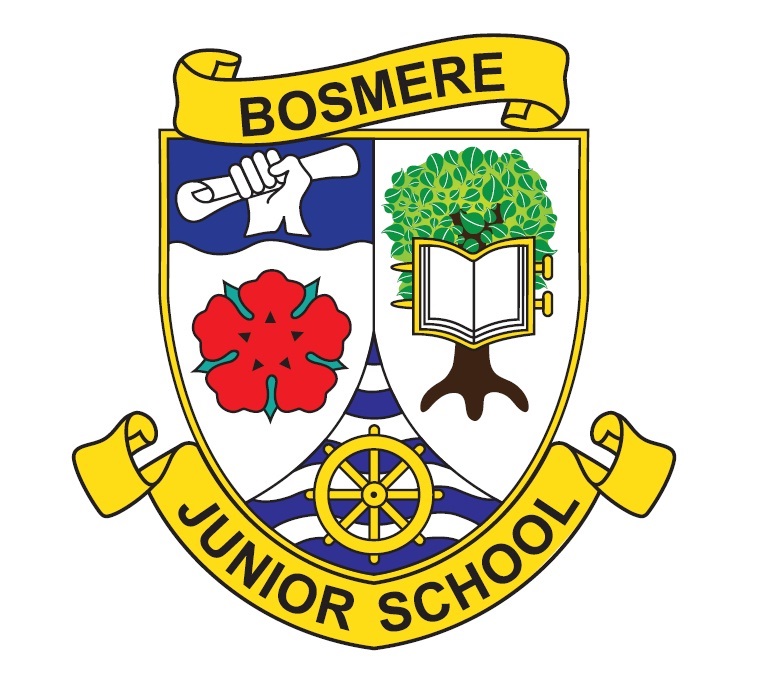Assessment
At Bosmere Junior School we believe that assessment is essential as an integral part of effective teaching and learning. Assessment procedures allow children to be given regular feedback on their learning so that they understand what it is that they need to do better. Effective use of assessment allows teachers to base planning and teaching on a detailed knowledge of each pupil or groups of pupils. Giving parents regular reports on their child’s progress ensures that teachers, pupils and parents are all working together to raise standards.
Assessment can take the form of:
- Ongoing teacher questioning and discussion in class
- Consideration / marking of finished work against the learning intentions / success criteria for a lesson / targets which have been set
- Involvement of the pupils in peer and self assessment
- Marking of tests
Assessment Calendar
Summative assessments are carried out for reading, writing and maths 4 times a year.
- Milestone 1 – Mid November
- Milestone 2 – Mid February
- End of Year – Early July
Each of these subjects is broken down into ‘domains’ (following the Hampshire Assessment Model):
Maths:
- Domain 1 – Number and Place Value
- Domain 2 – Addition and Subtraction
- Domain 3 – Multiplication and Division
- Domain 4 – Fractions
- Domain 5 – Measurement
- Domain 6 – Geometry (Shape and angles)
Reading:
- Domain 1 – Word Reading (Word recognition and decoding skills)
- Domain 2 – Clarifying (Understanding what they have read)
- Domain 3 – Summarising (Recapping the main points in a paragraph, chapter or whole text)
- Domain 4 – Retrieving Information (Finding specific information in a text)
- Domain 5 – Responding and Explaining (Using a text to explain their ideas)
- Domain 6 – Inference (Answering questions and making predictions about a text using clues in the writing)
- Domain 7 – Language for Effect (Recognising and discussing why a writer uses certain words or phrases)
- Domain 8 – Themes and Conventions (Understanding the features of different texts and why they have been written)
Writing:
- Domain 1 – Transcription (Spelling and using dictionaries)
- Domain 2 – Handwriting
- Domain 3 – Composition and Effect (The quality of language and content in the writing)
- Domain 4 – Text Structure and Organisation (Using paragraphs and other organisational features – introductions, conclusions etc)
- Domain 5 – Sentence Structure
- Domain 6 – Vocabulary, Grammar and Punctuation
At each Milestone, a summative assessment is recorded for each domain using the following codes:
- N – Not on track to be secure by the end of the year
- S – On track to be secure by the end of the year
- C - Close to on track to be secure by the end of the year (not there yet but should be by next milestone)
- B – On track to be beyond with a deeper understanding by the end of the year
These summative assessments are informed by formative assessments against individual objectives for reading, writing and maths, which are carried out on an ongoing basis by teachers.
Continuous monitoring, moderation and standardisation of assessment takes place both within and across schools.
Pupil Progress
Teachers and leaders analyse the data across the school to ensure that pupils identified as vulnerable or at particular risk are making appropriate progress, and all pupils are suitably challenged.
Individual ‘next steps in learning’ targets are set on a regular basis for each pupil in writing. These targets are recorded in the front of the writing book.
Individual ‘fill the gap’ targets are set as needed in maths. These targets are recorded on stickers on the front of the maths books.
Pupil progress is analysed and discussed with class teachers after every assessment milestone. The following areas of analysis are undertaken:
Progress of individual pupils is discussed with teachers at Pupil Progress Meetings following each assessment milestone. Interventions are put into place for those children who are in danger of not achieving age related expectations or making expected progress.
Reporting
Parents are invited to attend two consultations a year in order to talk about their child’s progress. They receive an end of year report in July with assessments against age related expectations and a summary of the year’s work. Year 6 parents also receive a summary of attainment in the end of key stage tests.
There is an open door policy which allows parents to request additional progress reports as they see fit at any other time of the year.
Assessment expectations for each year group
